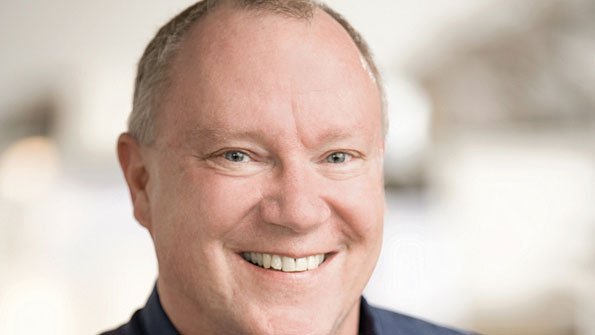FirstNet’s D’Agostino declares ‘we won’t fail,’ but doubts persist
ANAHEIM, Calif.— During a breakfast hosted yesterday by the Association of Public Safety Communications Officials (APCO), Bill D’Agostino, general manager of FirstNet—the entity that is tasked with building a nationwide broadband communications network for first responders—offered a few insights into the thinking of FirstNet’s board of directors.
D’Agostino praised public safety’s “brilliant” decision to insist that it “own” the 20 MHz of 700 MHz spectrum upon which this network will operate—“beachfront property,” he called it. He said that FirstNet’s strategy would not be “one size fits all,” but rather would be market-driven and “open to all comers.”
Regarding potential partners, D’Agostino said they would need to have both assets and operational expertise. FirstNet expects to start issuing requests for proposal (RFPs) sometime in the 2014 fiscal year, and portable hot spots would be the answer to serving the approximately 30% of the country that the core network won’t cover, he said.
D’Agostino also said, “There are people and companies out there who want FirstNet to fail—it will not fail.”
I believe that D’Agostino believes that. I believe that the public-safety sector wants to believe, too. But what I know is that many in public safety have serious doubts about FirstNet’s ability to pull this off.
There are numerous reasons for this. One is that this is an enormously complicated endeavor for which no blueprint exists. Another is that Congress is an impatient lot, and it will need to see some tangible progress soon regarding network design. In talking with public-safety communications people this week during APCO’s conference, the biggest question they have is, “What is this thing going to look like?”
Another red flag was that FirstNet pulled the plug on spectrum-lease negotiations with the city of Charlotte, a recipient of Broadband Technology Opportunities (BTOP) grant money that was bullish on the idea of building a 700MHz LTE network. But perhaps the biggest red flag is that the FirstNet board has created an impression that it might be in over its head.
These are smart, capable people—there’s no arguing that. However, the mess created by FirstNet board member Paul Fitzgerald’s multiple allegations of malfeasance by fellow board members—a matter still under investigation—raised quite a few eyebrows. But what really seems to bother people is that most of what FirstNet has accomplished so far concerns its own makeup. The perception is that not a lot of progress has been made so far on the actual network.
I am not of that mindset. Granted, the news regarding Charlotte was a stunner. But the city still plans to move ahead with LTE—it just won’t be among the early adopters. Regarding the early adopters, the Los Angeles Regional Interoperable Communications System (LA-RICS) Authority has a spectrum-lease agreement with FirstNet in hand, as well as $155 million in BTOP funding and just issued an RFP to build the network. Meanwhile, the Bay Area Regional Interoperable Communications System (BayRICS) Authority, which stumbled out of the gate, now appears to be heading in the right direction.
Also, thanks to the work of Emil Olbrich and Andy Thiessen of the Public Safety Communications Research (PSCR) program—a joint effort of the National Telecommunications and Information Administration (NTIA) and the National Institute of Science and Technology (NIST)—the concept of mission-critical voice over LTE is being considered by 3GPP, the worldwide LTE standards body. This was a Herculean task that was accomplished much sooner than anyone expected. It will be several years—at least—before mission-critical voice over LTE becomes reality, but just getting the gears to turn at this juncture is a noteworthy accomplishment.
When I think of all of this, the analogy that immediately comes to mind is that of a football game. Right now, FirstNet has the ball on its own five-yard line, and the goal line seems very far away. Actually, it is very far away, as it is going to take years to bring this network to fruition. On top of that, there’s no playbook for this—right now, FirstNet is drawing up plays in the dirt. Finally, the ball will be moved down the field 2-3 yards at a time—there aren’t going to be very many long passes.
All of that said, FirstNet would do well to understand that the key stakeholders in this initiative—the first-responder community and Congress—need to see the ball moving down the field, lest they lose faith. This is especially true of Congress, because if it pulls the plug on this, the opportunity will be lost forever.
The great Baltimore Colts quarterback Johnny Unitas was fond of saying, “talk is cheap.” FirstNet would be wise to embrace the notion.















